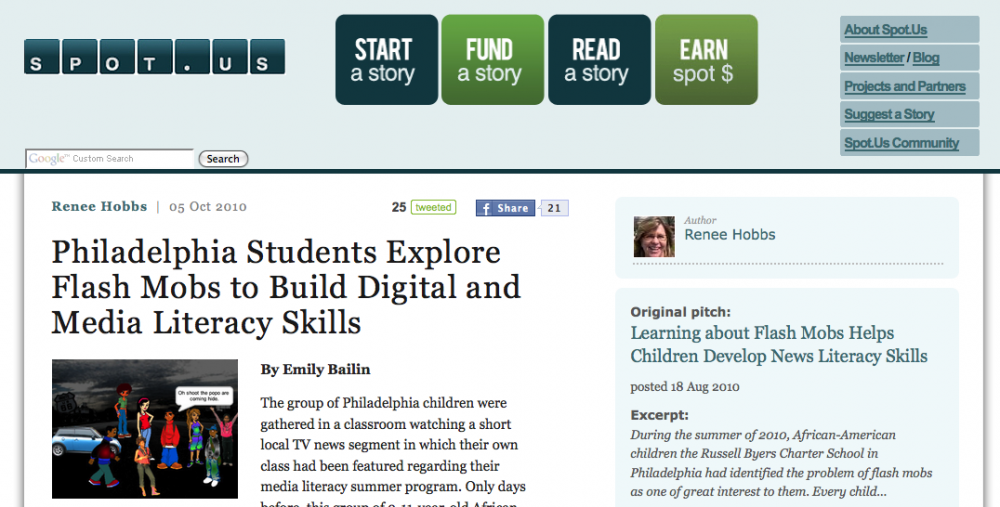Learn about the experiences and observations of a group of students who examined press coverage of the flash mobs in Philadelphia and created simple Scratch interactive videogames.
To read the article, click here:
Over the course of the 2010 Powerful Voices for Kids summer program, John Landis, technology teacher at Russell Byers Charter School, used flash mobs to teach media literacy and also called upon students to exercise media literacy skills to critically analyze flash mobs.
Spot.Us is a nonprofit project of the Center for Media Change and funded by various groups like the Knight Foundation. We partner with various organizations including the Annenberg School of Communications in Los Angeles. They are an open source project that pioneers community-powered reporting. Through Spot.Us the public can commission and participate with journalists to do reporting on important and perhaps overlooked topics. Contributions are tax deductible and we partner with news organizations to distribute content under appropriate licenses. On some occasions we can even pay back the original contributors.
Media Education Lab pre-doctoral fellow Emily Bailin wrote the article, which paints a vivid portrait of how children explored how news is constructed. Children voiced their own opinions about violence and peer pressure in the community. Mr. Landis was drawn to use computer programming as a tool for digital and media literacy because he believes that a crucial and noteworthy component of video games is that they highlight choices, placing both the creator and player in someone else’s shoes. “You’re not only making choices, but also dealing with the consequences.”
Children feel empowered when they realize that they’re creating the same things that they experience in their play worlds at home. Mr. Landis explained, “Video games offer a sense of‘Wow! I’m making this!’” Video game production also offers this feeling of empowerment for the investment of considerable time but little cost. That doesn’t mean that the materials and products are cheap and low quality. But digital programming gives children and young people an inexpensive way to reach wider audiences from different socioeconomic backgrounds.
